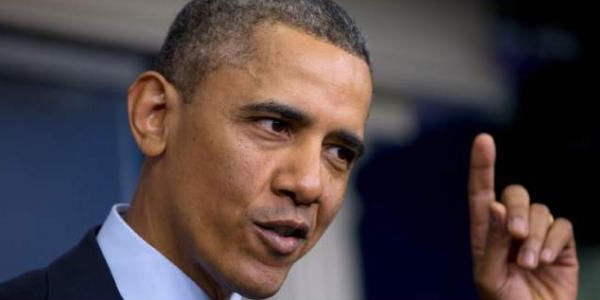“War is too important to be left to the generals.” This is a paraphrase of a quote attributed to the French statesman Georges Clemenceau.
Videos by Rare
The Founding Fathers certainly thought war was too important to be left to the president.
“The constitution supposes, what the History of all Governments demonstrates, that the Executive is the branch of power most interested in war, and most prone to it,” wrote James Madison, frequently called the Father of the Constitution. “It has accordingly with studied care vested the question of war in the Legislature.”
Despite the plain language of the Constitution, many today argue that presidential wars are perfectly permissible. In fact, they ridicule the very idea that anyone who isn’t a judge should be concerned about what is constitutional at all.
Consider this reaction by a prominent attorney to Rand Paul’s contention at the Liberty Political Action Conference that President Obama engaged in an “unconstitutional war.”
“Who needs a Constitution, I guess? Rand Paul decides on his on what is constitutional.”
Let’s leave aside for a moment whether Paul’s constitutional argument on war powers is correct. Should a lawmaker simply defer all constitutional questions to the judiciary?
Justin Amash’s (soundly defeated) Republican primary challenger Brian Ellis thought so.
Fed up with Amash’s efforts to follow the Constitution, Ellis told the Weekly Standard, “If something is unconstitutional, we have a court system that looks at that.”
“He has no use for Amash’s constitutional scruples,” the Standard reported.
If Ellis traveled around his Michigan congressional district telling the voters that Obamacare was constitutional because the Supreme Court said so, no wonder why he lost the Republican primary by such a large margin.
By this reasoning, however, Obamacare would have been unconstitutional if John Roberts had voted the other way—as once seemed likely.
John Roberts, the thin line between constitutional and unconstitutional.
There are a few things that need to be said about this view.
First, members of Congress swear an oath to uphold and defend the Constitution. They do not swear an oath to protect Supreme Court rulings or judicial precedent.
The same is true of the president and many other citizens who work for the government in far less prominent roles.
That means abiding by the language of the Constitution—by and large not a technical document—when its meaning is clear and uncontroversial.
It also means that elected officials must make their own independent constitutional judgments in the course of performing their duties.
Those judgments are not infallible, but neither are the judgments of the Supreme Court or the rest of the judicial branch.
Dred Scott or Plessy v. Ferguson, anyone?
Unlike some other countries, the United States does not have an unwritten constitution based on customs, traditions and court precedents. We have a written Constitution.
Moreover, ratification is the process by which the people and the states delegate power to the federal government in our system.
Allowing the Constitution to be defined by judges alone short-circuits this process by allowing the federal government—or at least one branch of it—the final say in determining its own powers.
In practice, courts frequently impose constitutional interpretations that would be alien to the people who ratified the constitutional provisions in question. This allows the government to assume undelegated powers and ignores the primacy of the ratifying public.
This is not merely a technical matter. Judicial enforcement has failed to preserve a federal government limited to constitutionally enumerated powers.
For those who find the constitutional limits on federal power annoying, such as politicians, that is all to the good.
But for those who prefer lawful government, it is a serious problem.
That doesn’t mean we simply ignore court decisions and go with our own personal interpretations of the Constitution, no matter how novel.
It does imply an obligation for public debate in which judicial interpretations of the Constitution aren’t considered the last word, no matter how novel.
The alternative isn’t the living Constitution of liberal imagination. It is the death of the real Constitution and the republic.
The Constitution is too important to be left to the judges.
And the lawyers, for that matter.



